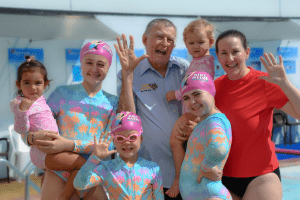Free Heart Beat Club online training for month of May
Royal Life Saving WA, in collaboration with national water safety initiative Kids Alive, is offering free access to its Heart Beat Club online course throughout the month of May — urging parents and carers to refresh their CPR and first aid skills amid ongoing concerns about preventable injuries and drownings in the home.

The Heart Beat Club is a self-paced, one-hour online course designed specifically for parents and carers of babies and young children. It covers essential lifesaving topics such as CPR, choking, burns, scalds, bleeding and shock, and is being made freely available in May to encourage more families to prepare for emergencies.
Despite broad awareness of the importance of first aid, only one in four parents update their skills annually — a figure that has remained stubbornly unchanged for more than a decade. Experts warn this lack of action can have devastating consequences, particularly in home environments where most child injuries and drownings occur.
“We’re seeing the same story year after year – parents understand that CPR and first aid are important, but they’re not acting on that knowledge,” said Lauren Nimmo, Senior Manager of Research, Media and Communications at Royal Life Saving WA.
“Emergencies unfold in seconds, and without basic skills, parents can be left helpless in those critical first moments. That’s why we’ve partnered with Kids Alive to remove the barriers of cost and time and make this course accessible to all families.”
In 2024, 15 children under the age of five drowned — with 40% of those deaths occurring in backyard pools and 27% in bathtubs. Alarmingly, there was also a 30% increase in drowning deaths among children aged 5–14 compared to the 10-year average.
Beyond drowning, the home remains the most common location for serious childhood injuries. Nearly 45% of child injury hospitalisations occur at home, with falls (33%), contact with objects (20%), and transport-related incidents such as bike accidents (14%) among the top causes. Infants face the highest risk of choking and suffocation.
Kids Alive founder Laurie Lawrence said many parents assume that drowning only happens at the beach or while on holiday, when in fact the most dangerous place is often the family home.
“I’m talking pools, baths, buckets, blow-up pools and dams,” said Laurie. “And when something goes wrong, it’s almost always a parent or carer who has to act fast. The only thing that can buy time and increase the chance of survival is CPR.”
The importance of these skills is all too real for Perth mother Emma De Longis, whose five-year-old daughter Mia nearly drowned in the family’s backyard pool. Emma had recently completed a CPR course, and her quick response helped save her daughter’s life.
“She was blue and lifeless. It was every parent’s worst nightmare,” Emma recalled. “Drowning is silent – there’s no splashing, no screaming. It just happens. Fast. What you do next can mean the difference between life and death.”
Royal Life Saving WA and Kids Alive are encouraging all parents and carers to take this opportunity to refresh their skills and be prepared should the worst happen.
Register today for your free access to the Heart Beat Club.